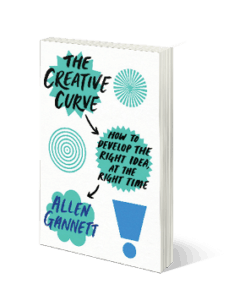 1. The Creative Curve
1. The Creative Curve
How to Develop the Right Idea, at the Right Time
By Allen Gannett
Many people believe creativity is something you’re born with. Allen Gannett would agree with that statement, but he also argues that anyone can learn how to be creative. He also writes, “You don’t need to do LSD to get inspired or pray for a simple moment of blinding inspiration.”
In The Creative Curve, Gannett analyzes some of the myths behind creativity and explores a science to coming up with brilliant ideas through hundreds of hours of interviews with creative minds including chefs, filmmakers and musicians. An entrepreneur and marketing scientist, Gannett identifies patterns among creative people and breaks down the summoning of creative moments into four steps: consuming information; imitation (and how to find the right amount of it); building a creative community; and making iterations.
If you could use practical advice for how to come up with more unique and innovative concepts, consider this book a how-to guide. (June; Currency; $28)
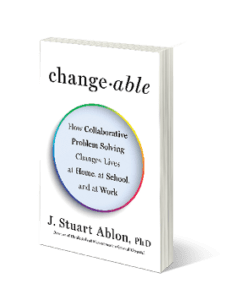 2. Changeable
2. Changeable
How Collaborative Problem Solving Changes Lives at Home, at School, and at Work
By J. Stuart Ablon
Changing problem behavior is a difficult task, whether it’s in a co-worker who is constantly late, a child who refuses to do their homework, or even ourselves. So how do we get to the desired results?
In Changeable, child psychologist J. Stuart Ablon starts by asking an important question: Is changing this type of behavior a matter of will or skill? Ablon uses more than 25 years of clinical work with juvenile offenders, parents, teachers, counselors and law enforcement to find out what makes us tick and how we can change behavior. He proposes a process, supported by research, through which one can build empathy and not only change problem behavior in others, but also help them tap into their full potential.
This book can be particular useful for leaders in search of a guide to help effect positive change in employees with flagging performance. (June; TarcherPerigee; $27)
 3. Gigged
3. Gigged
The End of the Job and the Future of Work
By Sarah Kessler
Currently a reporter at Quartz and formerly of Fast Company, Sarah Kessler has devoted her career to studying the future of work—the freelancing, gigging, contracting movement SUCCESS has dubbed The YouEconomy.
In Gigged, Kessler explains that more than a third of the American workforce is a freelancer, which presents many positives such as being able to work your own hours, freeing you up to pursue other passions or simply spend time with family and friends. However, these gigs can also come with challenges such as lack of health benefits. Kessler gets a close look at the pros and cons by following five main characters in her book, from a housekeeper to a tech entrepreneur. She imagines what the future of the YouEconomy will look like, how it will play out, and how much bigger it could get.
If you’re in the YouEconomy or you’re curious about stepping away from a traditional job, consider this book as the next step in your research. (June; St. Martin’s Press; $26)
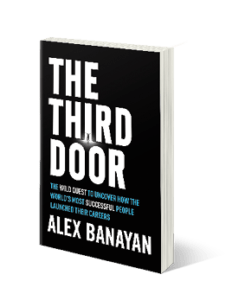 4. The Third Door
4. The Third Door
The Wild Quest to Uncover How the World’s Most Successful People Launched Their Careers
By Alex Banayan
When Alex Banayan was in college, he started reading biographies of powerful people such has Bill Gates and Steven Spielberg, but he wasn’t satisfied. He wanted to learn more about how people grew into great successes. Banayan came up with an idea: Win on The Price is Right and then use the money to fund a mission to learn from some of the world’s most successful people. It worked.
His quest for the answers led him to a renowned speaking career and this book, in which he shares how he traveled the country to learn from the icons. He chased journalist Larry King through a grocery store and hid in a bathroom to meet Tim Ferriss.
While others who have written similar books take traditional approaches to get advice from leaders, Banayan’s approach is off-the-wall, but in some ways it’s much more relatable. (June; Currency; $26)
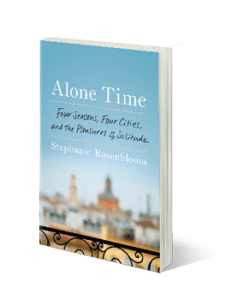 5. Alone Time
5. Alone Time
Four Seasons, Four Cities, and the Pleasures of Solitude
By Stephanie Rosenbloom
In an age when we’re always connected, it’s challenging to find time for ourselves. In her memoir, Alone Time, Stephanie Rosenbloom explores the benefits of traveling solo as a way to better get to know one’s self and the world around us.
Rosenbloom, a travel columnist for The New York Times, writes that when we travel by ourselves we have the time to notice and experience things we may have missed if we were traveling with someone else. She divides her book into four seasons with a city for each chapter—Paris, Istanbul, Florence and New York. In these burgs, Rosenbloom describes the wonder in savoring each moment, staying flexible, valuing tranquility and appreciating the routine. (June; Viking; $27)
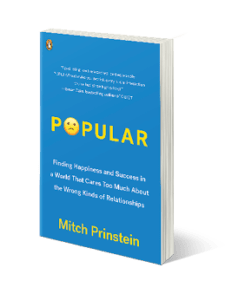 6. Popular
6. Popular
Finding Happiness and Success in a World That Cares Too Much About the Wrong Kinds of Relationships
By Mitch Prinstein
Throughout grade school, it was pretty easy to tell if you were popular. You were either one of the cool kids or you weren’t. But as we get older, trying to figure out whether we’re popular (and if or how that matters) changes.
Psychologist Mitch Prinstein divides his book into three parts. First he looks into the types of popularity that affect us today as adults, and where popularity still matters (the workplace, for instance). Then he examines how being liked can potentially have effects on health. Finally he analyzes what we can do about all of this for ourselves, as parents to our children, and how we can choose the popularity we want.
Written in straightforward manner, Prinstein helps readers understand how popularity affects us throughout life. The better we can understand popularity, he writes, the better odds we have for “meaningful, satisfying, and rewarding interpersonal relationships today.” (June; Penguin Books; $17)
Related: 25 Books for Success
This article originally appeared in the Fall 2018 issue of SUCCESS magazine.
[fl_builder_insert_layout slug=”amazon-affiliate-disclaimer”]










